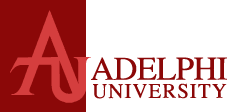
Neurophysiology in Speech
Language Pathology Lab
Home
Research Projects
Manuscripts
Personnel
Lab Gallery
Affiliated Labs
Professional Sites
Participate
Lab Calendar
Research
Projects
ERP studies measure summed activity of post synaptic potentials from similarly oriented pyramidal cells firing in synchrony while processing information and it provides direct measure of brain activity as a response to dynamic events with a good temporal resolution, some times even with no required active cooperation. Therefore, it can complement our knowledge in the field which is mostly based on data elicited using behavioral measurement.
There are some of the on-going projects:
EEG studies of Childhood Apraxia of Speech (Karen Froud, Reem Khamis-Dakwar, Melissa Randazzo)
Childhood apraxia of speech (CAS) is variously understood as a deficit of movement, motor planning or phonological representations. Underspecification theory suggests that CAS may involve abnormally specified phonological representations. In this case, simple phoneme recognition tasks should be more difficult in CAS, and this would be evident using neurophysiological indices of early auditory processing. We use EEG to compare neurophysiological responses to phonemic (/ba/, /pa/) and allophonic (/pa/, /pha/) contrasts in children with CAS and typically-developing peers. We hope that our findings will increase understanding of the underlying cause of CAS, and therefore eventually improve the treatment of CAS.
Neural correlates of learning Arabic as a second language (Reem Khamis-Dakwar, Mustafa Mughazy) Fall 2009
This study examines neurophyisoligcal correlates during the learning process of Arabic as a second language by English-native adult speakers. Three sets of experiments will be longitudinally carried in this study. The first set of experiment will examine the perception of the Arabic consonant contrasts using mismatch negativity paradigm (MMN), the second. The second set examines brain responses to root and word pattern priming in Arabic. And the third set is an EEG lexical decision examination.
The study recruits only healthy, normal native English-speaking adults learning Arabic at Adelphi University and Western Michigan University directed by Professor Mustafa Mughazy .
Variety Switching: An event-related brain potential study of Arabic native speakers ( Reem Khamis-Dakwar & Karen Froud)
This study examines cognitive representation and processing of code switching (CS) in diglossic Arabic (between colloquial and standard language varieties in Arabic ) comparing between brain responses for lexical switches from Modern Standard Arabic (MSA) to PCA (Palestinian Colloquial Arabic) and switches from PCA to MSA.
Lexical processing in diglossic codeswitching : MMN study (Reem Khamis-Dakwar, Karen Froud, & Sami Boudelaa)
This study uses EEG to investigate MMN responses of native speakers of colloquial and standard Arabic (a diglossic language) to switching between language varieties, while controlling for semantic, acoustic-phonetic, and phonological variables. Participants are presented with four real-word conditions: 1) PCA words with different meanings; 2) PCA and MSA words with the same meanings; 3) switching between dialects and between meanings; and 4) switching across languages (Arabic-English). Real-word conditions were matched by pseudoword conditions utilizing identical phonetic contrasts.
An Event-Related Potential Study of Noun-Verb Ambiguity in Aphasia (Robert Goldfarb & Reem Khamis-Dakwar)
This study examines lexical representation of ambiguous noun-verb homographs in individuals with fluent and non fluent aphasia using priming paradigm.
Those interested in doctoral studies at Adelphi in the area of cognitive neuroscience in speech language pathology, please contact Dr. Khamis-Dakwar